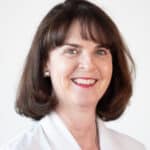- Services
- Your concern
- Skin aging
Skin aging
"Skin ageing refers to the biological processes that manifest themselves in external changes to the skin, among other things. This refers not only to ageing over time, but also to intrinsic ageing, i.e. the reduced reactivity of skin cells, which is genetically controlled. There are many things you can do to slow down the skin ageing process on your own. If it is already too late, thanks to modern aesthetic medical technologies, there are now a number of ways to support the process of skin rejuvenation."

Skin aging symptoms
The most visible signs of skin ageing on the face manifest themselves in the form of wrinkles, which begin to appear around the age of 25. For targeted treatment, the location and type of wrinkles must be examined more closely. Delicate, superficial lines appear at the outer corners of the eyes, while horizontal wrinkles form on the forehead. Vertical lines between the eyebrows often result from frown lines. Nasolabial folds, which appear between the nose and mouth, are caused by sagging skin and are often accompanied by a loss of volume. Over time, these wrinkles deepen due to repeated facial expressions.
In contrast to expression lines, wrinkles caused by loss of volume are not always obvious. The loss of volume is manifested by sagging skin and contours in the face. These diminished contours and reduced volume can give the face a tired, sad or stressed look. The loss of density also makes the skin appear thinner and weaker, causing it to lose its natural radiance.
Photos and videos
Skin aging causes
Skin rejuvenation through targeted measures is an important aspect of modern aesthetic dermatology. As we age, our skin's ability to regenerate slows down. This process is not only influenced by genetic factors, but also by the changing hormone balance. In women, this process often begins after the menopause. The decline in hormone levels and the increase in free oxygen radicals lead to an annual decrease of around 1 percent in the body's own hyaluronic acid and collagen production. At the same time, the skin becomes drier and thinner with age. The individual progress of these processes is strongly influenced by everyday habits, which can also have a positive effect on skin rejuvenation.
Excessive tobacco and alcohol consumption, intense UV radiation and extreme weather conditions such as heat and cold accelerate skin ageing. These factors increase the production of highly reactive free oxygen radicals, which damage the genetic material, cell membranes and important proteins in the skin. Hormones such as oestrogen, progesterone and testosterone offer some protection against these processes, but their effectiveness also decreases over time. Stress, lack of sleep, an unbalanced diet and dehydration are additional factors that can contribute to faster stop ageing.
Skin aging treatment
Various treatment methods are available to slow down the skin ageing process and promote skin rejuvenation.
Here you will find some of the most effective treatment methods:
Laser and light treatments:
- Most laser systems (CO2 lasers, erbium lasers, thulium lasers) aim to micro-injure the skin so that the natural wound healing process begins and the skin is renewed without forming scars. The microscopic holes can also be used, for example, to apply serums better and deeper into the skin. The appropriate treatment system is selected depending on the skin type and condition.
- Kleresca is an innovative biophotonic light therapy that stimulates the skin's rebuilding and repair mechanisms and contributes to skin rejuvenation.
- IPL photorejuvenation uses light with wavelengths of 500-1200 nm to stimulate collagen synthesis and treat various types of photoaging damage.
Injections:
- Hyaluronic acid filler can be injected directly into the skin. Two effects of hyaluronic acid can be utilized depending on its viscosity. Very liquid hyaluronic acid (e.g. Skinbooster) can replenish the body's own reserves of this important and natural component of the skin, resulting in firmness and elasticity. In addition, more strongly cross-linked hyaluronic acid fillers can be used to build up volume.
- PRP (platelet-rich plasma) mesotherapy uses platelet-rich blood plasma, which is rich in growth factors to promote skin ageing and wound healing. This treatment can be combined with a CO2 laser, for example.
Other treatment methods:
- HIFU (high-intensity focused ultrasound) e.g. using Ultraformer III
- Fractionated radiofrequency therapy
- Fractionated radiofrequency therapy Microneedling
Further information
Further information
Consultation
You can make an appointment for a consultation or treatment at our clinic in Zurich using one of the following options:
Treatment methods
Billing via the health insurance is not possible. The amount is to be paid on site directly after the treatment.




